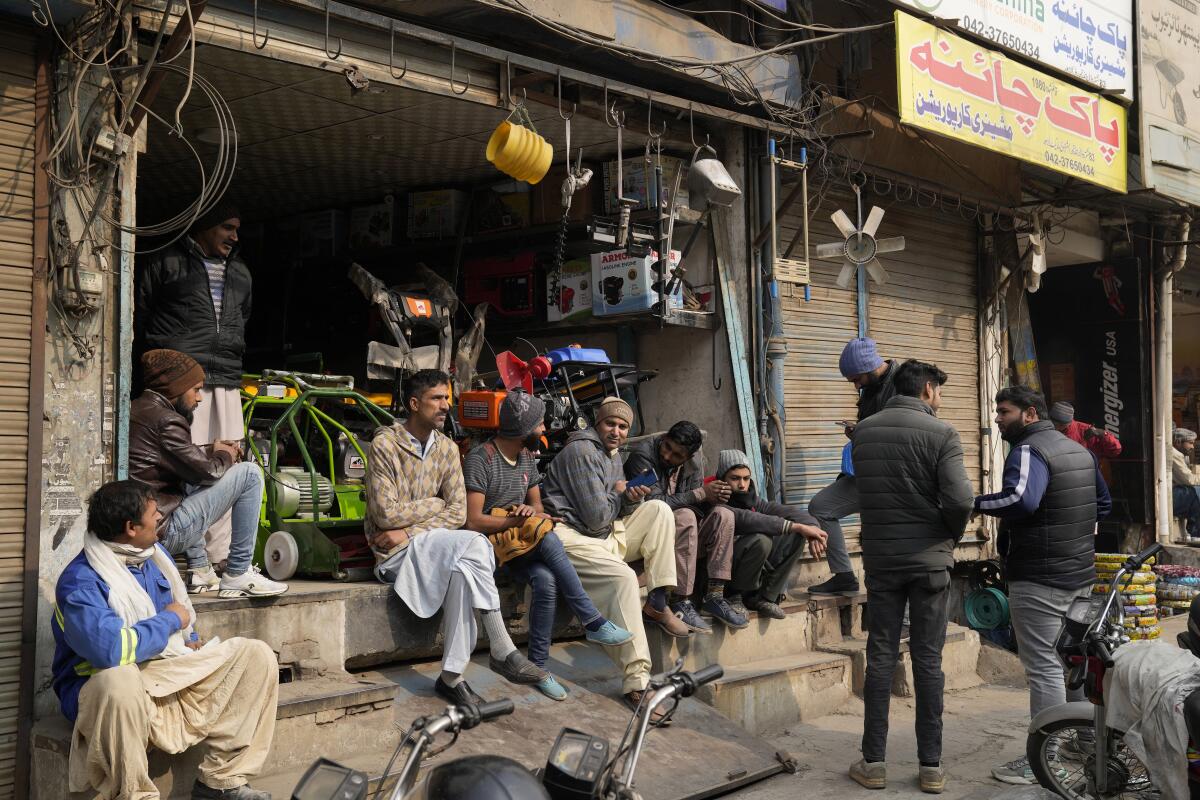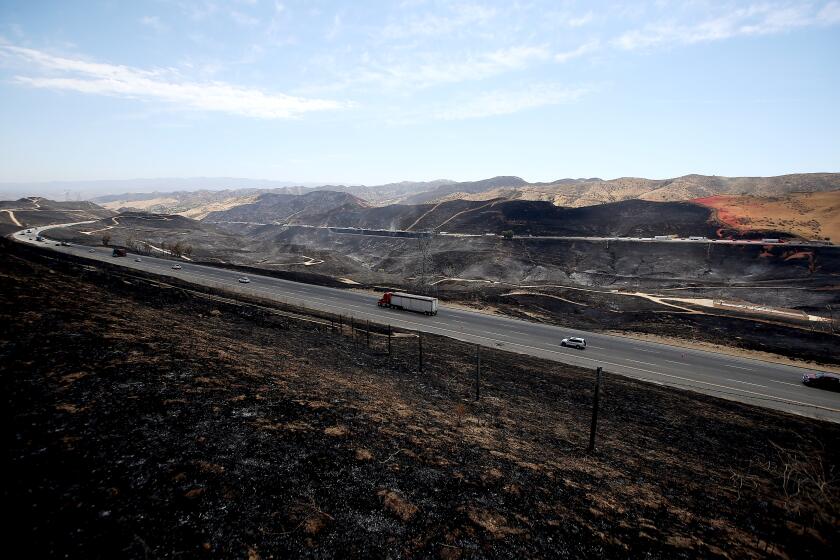Power grid fails across Pakistan after energy-saving move backfires

- Share via
ISLAMABAD, Pakistan — Most of Pakistan was left without power Monday as an energy-saving measure by the government backfired. The outage spread panic and raised questions about the cash-strapped government’s handling of the country’s economic crisis.
Electricity was turned off across Pakistan during low-usage hours overnight to conserve fuel across the country, officials said, leaving technicians unable to boot up the system all at once after daybreak. The outage was reminiscent of a massive blackout in January 2021, attributed at the time to a technical fault in the country’s power generation and distribution system.
Many major cities, including the capital of Islamabad, and remote towns and villages across Pakistan were without electricity for more than 12 hours. As the electrical failure continued into Monday night, authorities deployed additional police at markets around the country to provide security.
Officials announced late Monday that power was restored in many cities, 15 hours after the outage was reported.
Earlier, the nationwide breakdown left many in this country of some 230 million people without drinking water since pumps are powered by electricity. Schools, hospitals, factories and shops were without power amid the harsh winter weather.
Energy Minister Khurram Dastgir told local media Monday that engineers were working to restore the power supply across the country and tried to reassure the nation that power would be fully restored within the next 12 hours.
According to the minister, during winter, electricity usage typically goes down overnight — unlike summer months when Pakistanis turn to air-conditioning for a respite from the heat.
Newsletter: Pakistan’s floods. China’s summer. Our heat wave. What more do climate deniers need?
It’s really, really hot in Southern California, so catch up on some climate change reading, plus more from the week in Opinion.
“As an economic measure, we temporarily shut down our power-generation systems” Sunday night, Dastgir said.
When engineers tried to turn the systems back on, a “fluctuation in voltage” was observed, which “forced engineers to shut down the power grid” stations one by one, he added.
He insisted the outage did not constitute a major crisis and that electricity was being restored in phases. In many places and key businesses and institutions, including hospitals, military and government facilities, backup generators kicked in.
By late afternoon Monday, Dastgir told reporters at another news conference that Prime Minister Shahbaz Sharif had ordered a probe into the outage.
Pakistani officials say a gunman opened fire at a truck carrying former Prime Minister Imran Khan, wounding him and killing one of his supporters.
“We are hoping that the supply of electricity will be fully restored tonight,” Dastgir said.
Before midnight, power was back in Karachi, the country’s largest city and economic hub, and in many other major cities including Rawalpindi, Quetta, Peshawar and Lahore, the capital of eastern Punjab province.
In Lahore, a closing notice was posted on Orange Line metro stations, with rail workers guarding the sites and trains parked on the rails. It was unknown when the metro system would be running again.
Imran Rana, a spokesman for Karachi’s power-supply company, said the government’s priority was to “restore power to strategic facilities, including hospitals,” airports and other places.
News Alerts
Get breaking news, investigations, analysis and more signature journalism from the Los Angeles Times in your inbox.
You may occasionally receive promotional content from the Los Angeles Times.
Internet-access advocacy group NetBlocks.org said network data showed a significant decline in internet access in Pakistan that was attributed to the nationwide power outage. It said metrics indicated that connectivity was at 60% of ordinary levels as many users struggled to get online Monday.
Pakistan gets at least 60% of its electricity from fossil fuels, while nearly 27% of the electricity is generated by hydropower. The contribution of nuclear and solar power to the nation’s grid is about 10%.
Pakistan is grappling with one of the country’s worst economic crises in recent years amid dwindling foreign-exchange reserves. This has compelled the government earlier this month to order shopping malls and markets closed by 8:30 p.m. for energy-conservation purposes.
Talks are underway with the International Monetary Fund to soften some conditions of Pakistan’s $6-billion bailout, which the government thinks will increase inflation. The IMF released the last crucial tranche of $1.1 billion to Islamabad in August.
Since then, talks between the two parties have deadlocked because of Pakistan’s reluctance to impose new tax measures.
More to Read
Sign up for Essential California
The most important California stories and recommendations in your inbox every morning.
You may occasionally receive promotional content from the Los Angeles Times.















